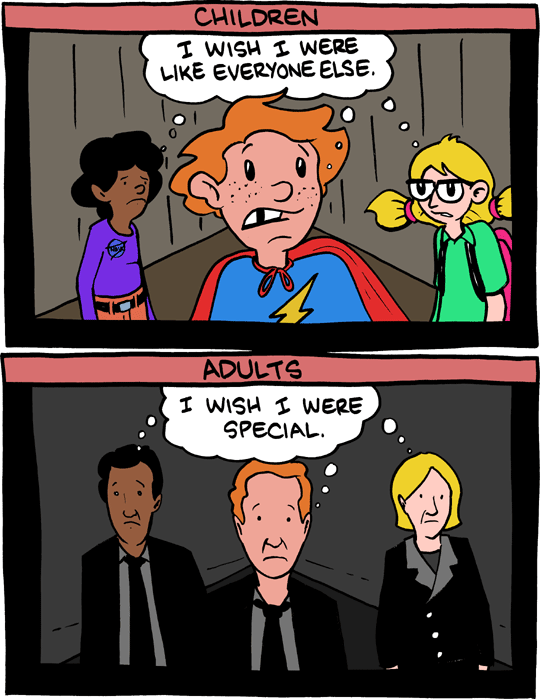I
When trying to understand why most schools work the way they do, it can be useful to understand schools as the result of what people think education is. In other words, the reality of schools is a function of beliefs people have about education.
The reason so many Sudbury schools fail to grow or even to survive is that they do not fit the beliefs people currently hold.
The reason any Sudbury school does succeed is, then, that some people in some places are capable of conceiving of education quite differently from almost everyone else; this in turn probably has some history behind it, as I don’t believe that beliefs undergo massive shifts spontaneously.
People who understand un-schools like Sudbury schools must have had some previous contact with some unconventional understanding of education.
II
The same probably holds within schools: the way most classrooms are in most traditional schools is a function of how people, in particular education professionals, understand education.
Most people I’ve met in some stage or another of teacher training want to change/improve the school system from within. I assume this is not some special feature of my generation, but has always been this way. So how have most schools managed to stay fundamentally the same as 100 years ago with so many people trying to change them from within all of the time?
Again, it might be useful to understand this as a result of people’s beliefs about education. In most cases the revolutionary young teacher will come into a school where the majority of staff is old, tired, old-fashioned, and so used to its way of doing things that they’re almost automatic. Almost any change the newbie tries to make will be met with resistance and criticism. There is almost no way one or two young teachers could change the minds of all of their colleagues. They can rebel, live through hell, then likely get fired; they can just quit; or they can conform.
I’d guess very few young teachers have ever rebelled and made it into their second decade of teaching. We are thus left with a system of schools staffed by those whose will has been broken, whether or not this happened before, during or after teacher training. All this because of persistent beliefs on education.
Turning this around, how does a non-traditional school achieve persistence and coherence? By creating an environment in which prevailing beliefs on education dictate a different line of action. I’ve met people from a democratic school in which the traditional beliefs about education maintained enough of a foothold that the structures eventually came to closely resemble those of traditional schools. I hear the mentality and atmosphere may slowly be following.
As a social structure, the reality of a school depends entirely on the beliefs of people.
III
Another attempt at applying this principle: (self-)selection of those attending democratic schools may be driven more by the expectations of those who choose not to apply than by those who choose to be part of them.
Many accuse non-traditional schools of being an elitist escape of the well-to-do – a way to separate themselves from “the dirty masses”. The reality is that while most democratic schools are not intentionally exclusive, they tend to, indeed, primarily include well-to-do families (i.e. middle and upper classes).
Why? Perhaps because of the tremendous power of popular beliefs: those who have a financially stable background can afford to go against popular beliefs and get an education that people don’t think is an education; those who must struggle to survive get an education everyone can understand because this is safer.
IV
Sudbury schools’ internal workings are nothing like those of a traditional school. Yet as an institution, they do conform to popular beliefs about education in that they are places young people go to during working hours with the long-term expectation of them being prepared for adult life.
This might be a kind of memetic bridge – matching some practical beliefs people have about education while defying most theoretical beliefs. This may help abolish or amend the belief structures that create schooling as we know it, eventually making even Sudbury schools unnecessary when society understands that what children need is not an “educational” environment, but simply an environment that protects and empowers them – something we could ultimately have in many different contexts, not just specialized “schools”.
On the other hand, this conformist aspect also attracts a lot of problems. Many people come to Sudbury schools expecting, well, a school, and have a very hard time understanding that while it may look like a school and fulfill a similar social function, it is formed by very different beliefs. These problems are worth the bother, because without appearing to be a school, Sudbury schools would likely attract few students, and have a very hard time growing/surviving.
NOTE: The above is reflection resulting from an online/Copenhagen discussion of John Moravec’s Horizon Forum, which I took part in yesterday (although unfortunately I couldn’t stay until the end).
Footnotes






![[Video] Elizabeth Lesser: Take “the Other” to lunch](https://www.didyoulearnanything.net/wp-content/uploads/video-elizabeth-lesser-take-the.jpg)


